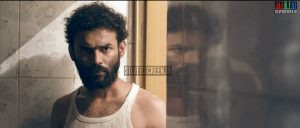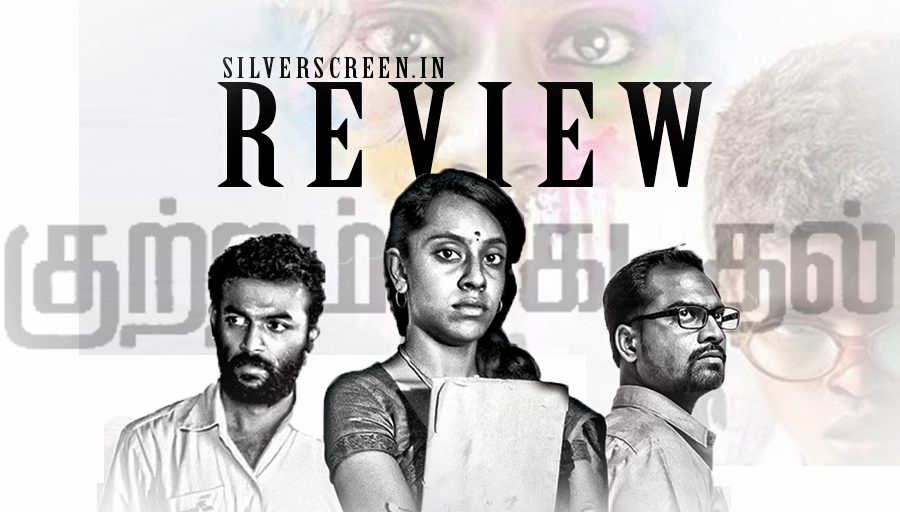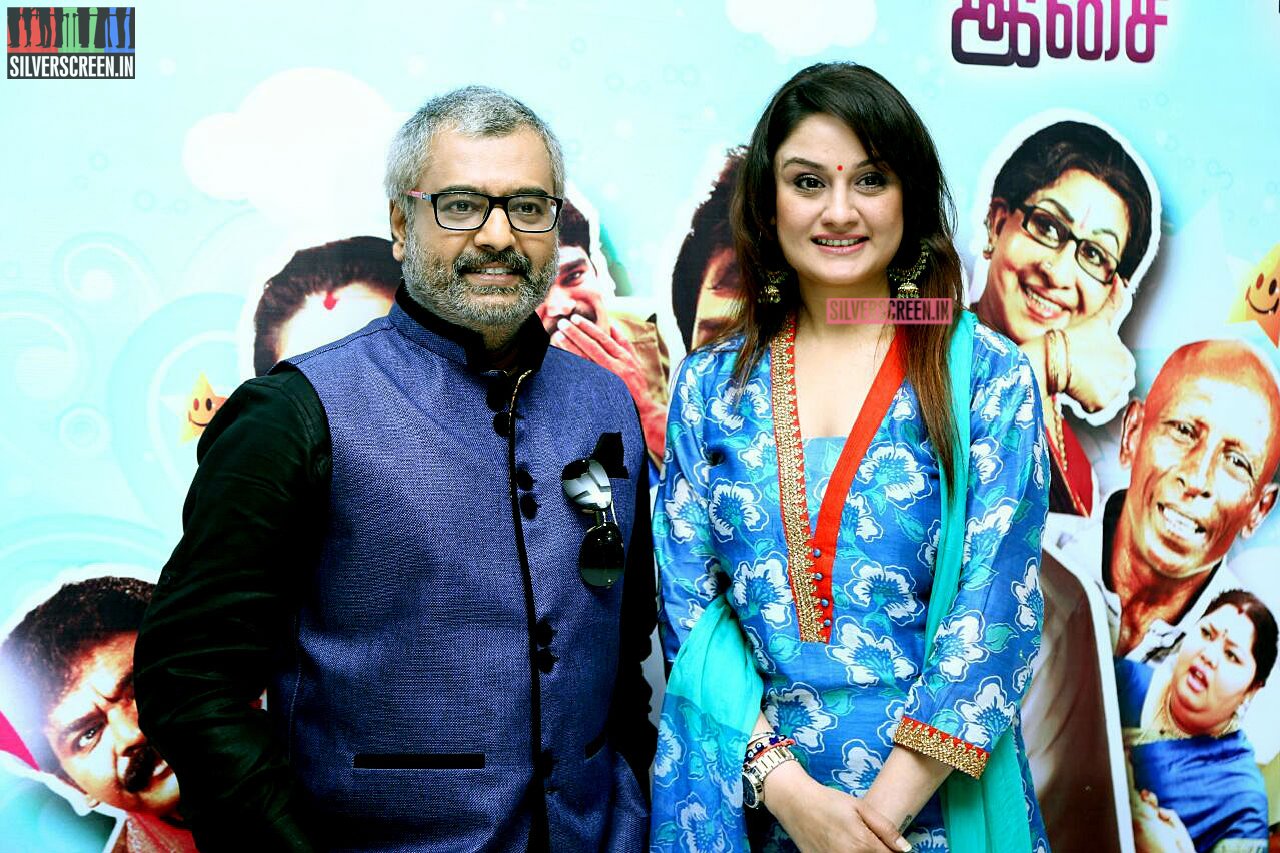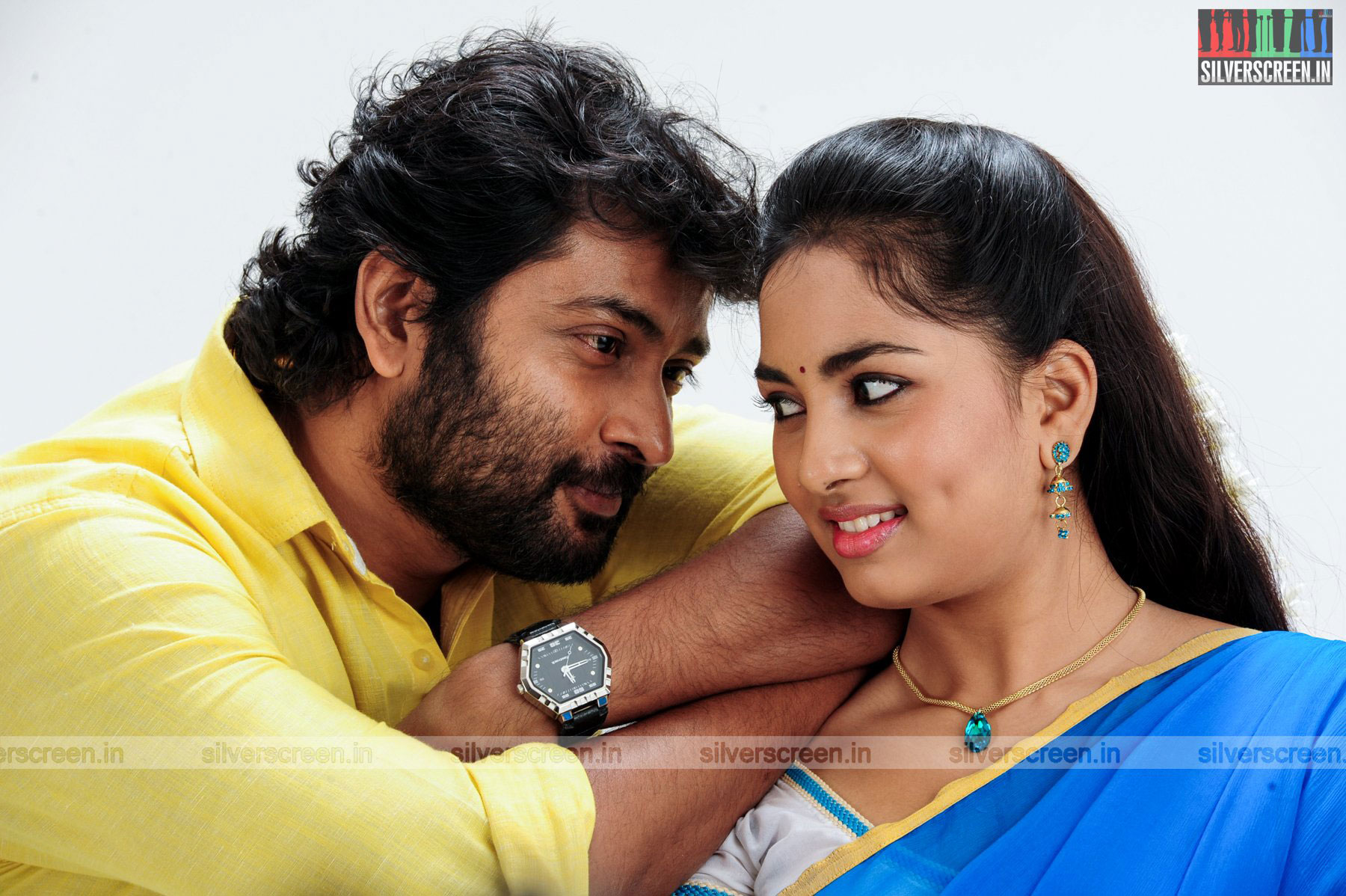Kuttram Kadithal unfolds like a cyclone. A nondescript incident at a primary school snowballs into a situation of severe gravity. Of class-division, corporal punishment at schools, guilt, and retribution. In the eye of the cyclone is 10-year-old Chezhiyan. Sweet, free-spirited, and a little reckless. And his maths teacher, Merlyn. Young, newly-wed, and full of dreams.
There’s something in this too-perfect film that leaves you aching. It has an intelligent and compelling storyline. Well-written dialogues, unseasoned, yet terrific actors, and brilliant technicians amply support the film. But in the end, you find yourself searching for the thorn that pricked your feet. While you were walking through a soft, lush lawn. Mesmerised.
*****
All hell breaks loose when Merlyn loses her cool and hits the child, Chezhiyan, in front of the entire class. Teachers rush the unconscious child to a hospital. A frantic Merlyn and her husband go into hiding. The child’s uncle, Udayan, is a left-leaning auto-driver who wants to make sure the guilty don’t go unpunished. The child’s mother, a single parent, waits outside the surgery room. Too shocked to vent her grief and anxiety. The school principal and his wife, who have a tragic past, try to ensure that no one, neither the child’s kin nor the teacher, go through the pain they once went through. And the headline-starved media puts them all on trial.

The film drips Dostoyevsky. Crime and Punishment. The emotional trauma of a guilt-ridden person. Harsher than any external punishment. Merlyn, when forced to retreat to a remote town near Chennai, is tormented with self-imposed suffering. What ultimately liberates her is the courage she accumulates at the end. The film brilliantly explores the mental ordeal of one young woman.
Udayan is a well-read and politically mobilised person from a modest background. (He is seen reading a Tamil translation of Maxim Gorky’s ‘Mother‘). He has an axe to grind against people from the higher-strata of society, for their apathy towards the sufferings of others. But the film makes no black and white segregation between characters from different backgrounds. When tragedy strikes, we see everyone trying to reach out in some way. The incident is catastrophic, but cohesive. Irrespective of their class, caste and religion, the people involved become closer.
*****
The film could have been Kollywood’s answer to A Separation (Asghar Farhadi’s Oscar-winning Iranian drama), which had a similar narrative.
However, an excess of dramatic moments and cinematic coincidences hold the film back from becoming something that would have been a first for Tamil cinema: undiluted realism.
And director Bramma’s love for motifs. You see them everywhere as biblical quotes, statues of Jesus Christ, and ominous coincidences. The camera pans to a statue of Christ, shadowing the couple while they ride happily to their workplace. A black polythene bag sticks to Merlyn’s feet as she walks out of the school campus. When Merlyn, on the verge of a break-down, is desperately trying to make a phone call to her husband, you see a man in the background, flagellating himself as part of a religious ritual. And there’s a stage performance about crime and punishment in a remote village, while the couple wait for a bus to Chennai, feeling stranded.
*****

kuttram-kadithal-movie-stills-005
Manikandan’s visuals form an organic part of the movie. The lighting blends beautifully, and the shots set up the melancholic mood perfectly. If there’s one jarring note, it’s the background score and aalaaps, which in parts can sound overbearing and loud. A perfectly-edited montage of the Bharathiyar verse Chinnanjiru Kiliye takes us through the past of the lead characters. And Bramma brilliantly combines theatre and cinema in the song sequence. Bottomline: this is a film that deserves every accolade it gets.
*****
The Kuttram Kadithal Review is a Silverscreen original article. It was not paid for or commissioned by anyone associated with the movie. Silverscreen.in and its writers do not have an advertising relationship with movies that are reviewed on the site.



